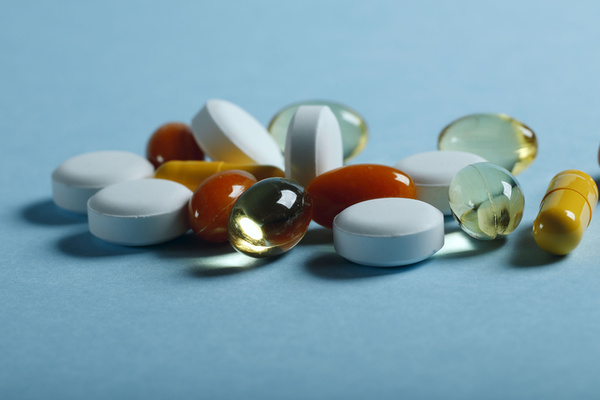
New Study Indicates Vitamin D Deficiency Increases Opioid Risks
According to a study published last week in the journal Science Advances conducted by researchers at Massachusetts General Hospital, vitamin D deficiency increases the likelihood that patients will become addicted to opioids and contributes to the severity of opioid withdrawal. The study reported on both research in mice and in humans. Add this to the many reasons to have vitamin D levels tested and supplement as needed.
Human Studies of Vitamin D Deficiency and Opioid Addiction
After analyzing human data from the National Health and Nutrition Examination Survey, the researchers found that those with insufficient vitamin D levels (less than 20 ng/ml) were more likely to use opioid painkillers and more likely to be diagnosed with an opioid use disorder than those with sufficient vitamin D levels.
Though vitamin D can be found in foods, it is very difficult to get adequate vitamin D from diet. The biggest source is sun exposure on the skin, which than causes the body to make vitamin D. Prior research had also discovered that exposure to the sun’s UVB rays causes the body to produce endorphins, the body’s natural opioids and feel good hormones. Vitamin D deficient people may addictively seek out the sun for its enhancement of both vitamin D levels and mood.
Animal Studies of Vitamin D Deficiency and Opioid Addiction
In studies with mice, vitamin D deficient mice and mice with normal vitamin D levels were compared. All groups of mice were conditioned to morphine at different doses. The vitamin D deficient mice exhibited opioid-seeking behavior at all dosage levels while the mice who were vitamin D sufficient did so only at the highest dosage level. When the vitamin D deficient mice had their levels restored to normal, opioid seeking behavior became consistent with the mice whose levels were initially normal. This indicates that the negative effect of vitamin D deficiency on opioid seeking could be reversed.
Development of tolerance to opioids, which then requires higher dosages to get the same effect, was found to be faster in vitamin D deficient mice. Vitamin D deficient mice also exhibited more severe withdrawal symptoms than mice with normal vitamin D levels. Correcting vitamin D levels in deficient mice alleviated the withdrawal symptoms.
Researchers Recommend Vitamin D Supplements for Prevention and Treatment of Opioid Addiction
The researchers concluded that correction of vitamin D deficiency “could be beneficial in the prevention and treatment of opioid addiction, especially considering that VitD is generally inexpensive, accessible, and safe”.
Other Risks of Vitamin D Deficiency
Will this latest finding reduce the resistance of mainstream health authorities to recommend routine testing of vitamin D levels in healthy adults? After all, millions of Americans have become addicted to opioids after they were prescribed to treat pain and hundreds of thousands have died. So far the following well established risks of vitamin D deficiency have failed to persuade them:
- Cardiovascular disease
- High cholesterol levels
- Inflammation
- Diabetes
- Weight gain
- Infectious diseases
- Multiple sclerosis
- Declining cognitive function
- Physical functional impairment
- Nonspecific bone and joint pain
- Nonspecific musculoskeletal pain
- Fatigue, including chronic fatigue syndrome
- Muscle weakness
- Fibromyalgia
- Neuropathy
- Osteoarthritis
- Rheumatoid disorders
- Headaches
- Immune disorders
- Depression and other mood disorders
- Greater susceptibility to acute respiratory infections
- Mortality from all causes
Should You Supplement with Vitamin D?
Increasinag your vitamin D levels is one of the most important things you can do to promote health. Vitamin D is safe, affordable and available over-the-counter. To optimize vitamin D levels, it’s best to have your blood levels checked through a simple blood test. However, vitamin D toxicity from taking too much is extremely rare. Chances are, if you do not spend much time outdoors with skin exposed to the sun and you are not supplementing, your vitamin D levels are most likely insufficient. Being older, having dark skin, using sunscreen, living further away from the equator and certain medications also reduce vitamin D synthesis.
See Our Recommended Vitamin D Supplement Here
Search Our Recommended Pain Relief Products
Find Alternative Pain Treatment Providers
The author, Cindy Perlin, is a Licensed Clinical Social Worker, certified biofeedback practitioner and chronic pain survivor. She is the founder and CEO of the Alternative Pain Treatment Directory and the author of The Truth About Chronic Pain Treatments: The Best and Worst Strategies for Becoming Pain Free. She's located in the Albany, NY area, where she has been helping people improve their health and emotional well-being for over 27 years. See her provider profile HERE. She is available for both in-office and virtual consultations.











Comments